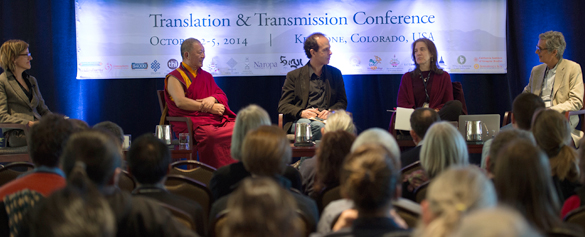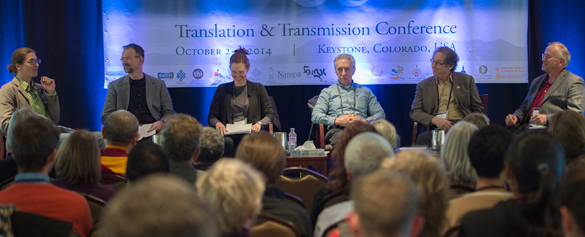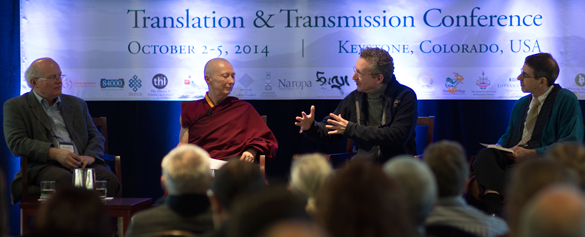Transmission: Authenticity and Transformation
Marcus Perman2022-11-16T23:37:00-07:00As curators of context, translators create and manage the ongoing, multifaceted process of transmission through their work. Panelists explore this process from varied angles. Ringu Tulku articulates the view of transmission from the Tibetan tradition speaking about empowerment, transmission, and instruction while David Germano highlights the importance of the perpetual responsibility of translators when considering both temporal and atemporal spaces. Relationship and interconnection feature prominently in Anne Klein’s talk and John Canti focuses on the translator as the creator of context so that transmission is properly received.



